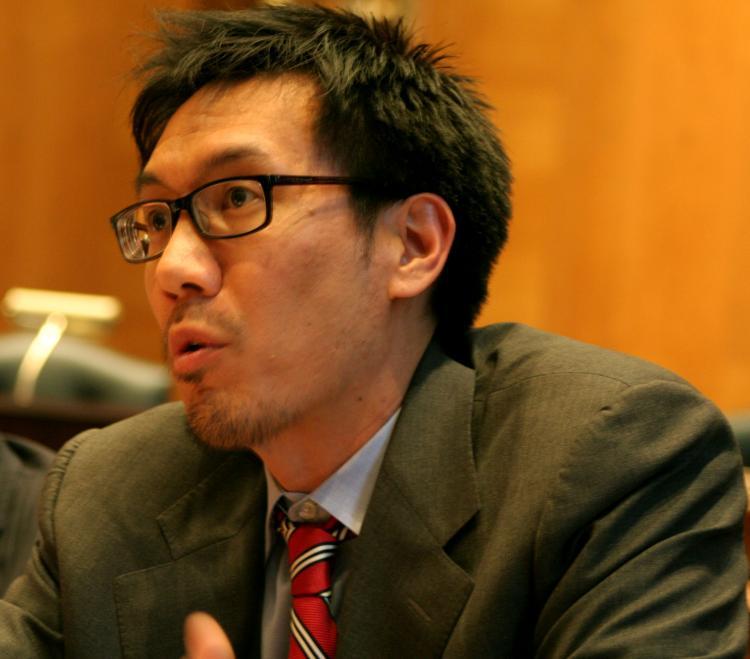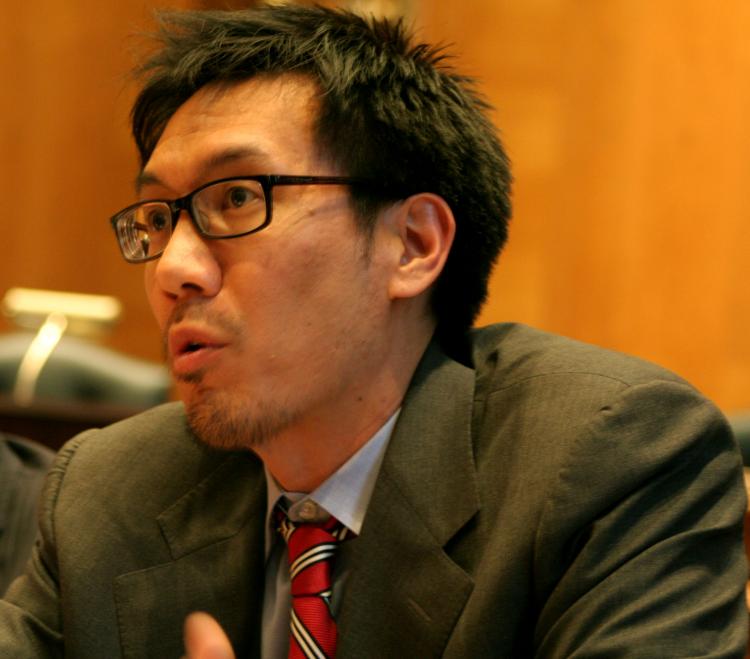WASHINGTON, D.C.—Over the past 12 months, the Chinese Communist Party (CCP) has become more aggressive in expanding its laws and regulations to control an increasing number of facets of daily life, especially the Internet and cell phones, and in suppressing independent expression of all forms: religious expression, petitioners, and the media.
The Congressional-Executive Commission on China (CECC) has released its 2010 annual report, detailing troubling developments beginning in November 2009. The report notes the increasingly harsh repression of the legal profession that has implications for human rights defenders and those engaged in business in China.
The regime introduced new rhetoric on its compliance with international human rights standards that is likely to impede U.S.-China dialogue. The communist regime has become emboldened, saying that its Internet policies are in line with international law.
China’s regime has developed another tool to control dissent by increasingly threatening to ban human rights defenders and advocates critical of the regime from traveling out of the country. The regime regards such travel as a “state security” threat, something that would “cause a major loss to national interest.”
Risk to Foreign Businesses Increases
Now even normal business activities are targeted by the regime. Geologist and U.S. citizen Xue Feng was convicted in July and sentenced to eight years for illegally providing state secrets. Feng worked for a U.S. company and enabled his firm to purchase an oil industry database of China.
The information was classified as a state secret only after Feng arranged the purchase. Feng was detained for two years before sentencing. According to the Huffington Post, he said that he was burned with cigarettes on his arms.
This case is alarming news to anyone contemplating work in an industry where state ownership is involved. The risk of being charged with violating laws on state secrets “complicates the legitimate gathering of commercial information,” says the report, and is antithetical “to standard international business practice and undermines the rule of law.”
The Google decision last January to no longer censor in accordance with the regime’s wishes has received a lot of media coverage. The report said that the Google controversy illustrated the oft-noted impatience the regime has with “private companies that it perceives to have grown too large or too successful.” The Google case also demonstrates that the regime’s censorship requirements act as trade barriers, forcing outside companies to stop providing services to Chinese citizens.
At a CECC roundtable discussion, Oct. 20 on Capitol Hill, Lawrence Liu, senior counsel for CECC, said that the regime issued a white paper in June, which said that China guarantees freedom of speech on the Internet—notwithstanding Google’s pullback and the many Internet users in jail. The regime has been mounting a “diplomatic PR campaign,” arguing, “what they are doing is simply what other countries are doing,” Liu said.
The Chinese regime’s new rhetoric on its compliance with international human rights standards “creates new challenges for U.S.-China dialogue,” says the report.
More Restrictions on Lawyers
During the past year, the commission noted official widespread repression on human rights lawyers with “extralegal detention, administrative punishments, and harassment.” In April, even greater restrictions on the legal profession were announced.
During President Obama’s visit to China, Chinese security officials placed “dozens” of human rights lawyers and defenders under house arrest or under surveillance, according to the report, which cited Amnesty International as its source. The names of the attorneys include some well-known human rights lawyers: Jiang Tianyong, Li Xiongbing, Li Heping, and Mo Shaoping, with three or four police officers stationed around their homes.
Prominent human rights attorney Gao Zhisheng was also incarcerated, subject to house arrest, and torture. This year in late March, Gao “resurfaced” after “disappearing” for more than a year, and then “disappeared” again in late April.
In late 2009, in Dalian, Liaoning Province, lawyer Wang Yonghang was sentenced to seven years imprisonment, in a closed court hearing without an attorney. His “crime” was “defending Falun Gong practitioners and publishing articles on Internet sites outside of China.” He reportedly has been beaten on three occasions and suffers from a severe ankle injury, both of which were verified by eyewitnesses in January.
The regime continued in 2010 to use the annual licensing of lawyers as a method to “silence” human rights lawyers and “intimidate other attorneys from joining their ranks,” says the report. In July, six human rights lawyers, including Jiang Tianyong, were denied licenses. Some lawyers passed the assessment only after “guaranteeing they will avoid certain sensitive cases or decline interviews,” says the report, citing Radio Free Asia.
‘Abnormal’ Petitioning Behavior
According to China’s Constitution, citizens have the legal right to appeal to the government, court, or the Party to present their grievances—a system designed to provide an outlet for wronged Chinese citizens. Despite the right to petition and prohibitions against retribution, citizens commonly face “harassment, violence, or detention in re-education through labor [RTL] centers, psychiatric hospitals, and extralegal ‘black’ jails,” says the report.
This year, petitioners faced more abuse. In Shenzhen, authorities identified 14 types of “abnormal” petitioning behavior, such as shouting slogans, which can be used to send a petitioner to an RTL. Other provinces and cities have issued similar regulations.
This year, Chinese authorities were particularly hard on petitioning that might interfere with the Shanghai 2010 World Expo. Some petitioners on behalf of the 18,000 households who lost their homes in preparation for the event ended up in an RTL.
“Black jails” are still employed by local officials to detain petitioners in secret detention sites to prevent petitioners from traveling to Beijing or other provincial capitals. In June Xu Lingjun, from Shaanxi Province, died of starvation in a black jail.
Sometimes petitioners are committed to psychiatric hospitals. This year, the report cites a case that received a lot of publicity because of an article in China concerning Henan petitioner Xu Lindong, who was held in a mental hospital for six and a half years. Xu was shackled 48 times, subjected to electric shocks on 54 occasions, and was forced to take psychiatric drugs. Xu was labeled mentally ill because he filed a petition for a disabled friend over a land dispute with local authorities.
Falun Gong
This year, the report focused on the Shanghai 2010 World Expo in its comments on the Falun Gong persecution. Held May-October, the Chinese regime used the Shanghai Expo as a pretext to persecute Falun Gong practitioners. The CECC report says:
“In the lead-up to and during the Shanghai Expo, authorities conducted propaganda campaigns deriding Falun Gong, carried out strict surveillance of practitioners, detained and imprisoned large numbers of practitioners, and subjected some who refused to disavow Falun Gong to torture and other abuses in prison and [RTL] facilities.”
In May, the U.S.-based Falun Dafa Information Center documented 127 cases of Chinese authorities detaining practitioners in the Shanghai area, and 26 are known to be serving sentences.
The report noted that the persecution of practitioners extended well beyond the Shanghai municipal area, even as far away from Shanghai as Jiangxi Province, 700 miles away.
The Congressional-Executive Commission on China (CECC) was established in 2000 by an act of Congress to monitor human rights and rule of law in communist China, and submit an annual report. The commission is bipartisan, consisting of members from both major political parties from both chambers of the Congress, as well as senior administration officials appointed by the president.





